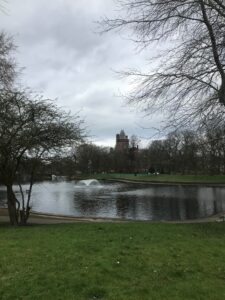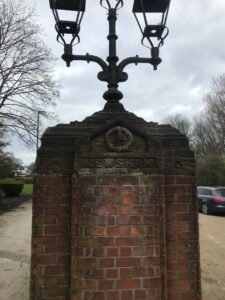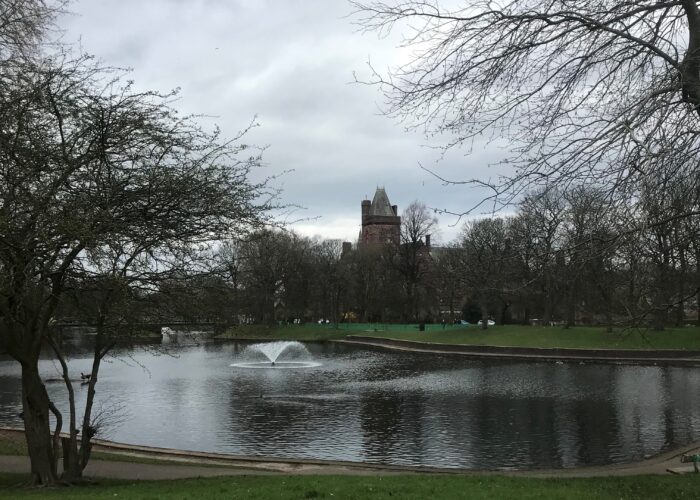![]() Liverpool has become the first city in the UK to ensure that all parks and green spaces are legally protected.
Liverpool has become the first city in the UK to ensure that all parks and green spaces are legally protected.
Over 1000 hectares across 100 parks will be protected for future generations to enjoy, as Liverpool City Council committed to working with independent UK charity Fields in Trust.
Fields in Trust communications manager Richard McKeever told JMU Journalism: “Over the past 12 months people have really taken a renewed interest in their local parks and green spaces; the spaces that are close by, around the corner and easily accessible. They have become vitally important.
“We know that usage of parks and green spaces has risen somewhere around 300 percent over the last year. People have recognised how important they are, so we think it is important to maintain them and make sure they are always available in the future. I think they’re going to be an important part of the recovery.”
A statement issued by Fields in Trust chair of trustees Jo Barnett highlighted how valuable parks and green spaces can be to health and wellbeing but that only 6 percent of UK parks are protected and access is not equitable.
She added: “We need to champion and support these precious spaces by protecting them for future generations to enjoy. Because once lost, they are lost forever.”
The protection of the parks will be in a phased approach, to ensure that by 2023 everyone in Liverpool will be within a 10-minute walk from a protected green field space.

Despite the partnership with Fields in Trust, the parks and green spaces will remain under the ownership and management of Liverpool City Council.
Fields in Trust’s research into green spaces has revealed that in Liverpool there are approximately 25.3 square metres per person, which is about a quarter the size of a six-yard box on a football pitch, but only four hectares of Liverpool’s green spaces and parks are legally protected against building development or loss.
Mr McKeever said: “It’s one of those things where people assume their parks and green spaces will always be there, but they’re not actually serviced.
“Unlike the bins, library & education, local authorities don’t have to provide parks and green spaces. When there is pressure on finance, the non-specialist things are the ones that suffer.”
The vitality of protecting these public spaces is significant in Liverpool where one in six people have no access to a private or shared garden.

Data from ONS shows that the average size of a Liverpudlian’s private outdoor space (144.4m2) is less than half of the British average (332.7m2).
Acting Mayor of Liverpool Councillor Wendy Simon said in a statement: “Liverpool is blessed to have so many stunning green spaces, and this new initiative means we can ensure everyone has access to free, local outdoor spaces for sport, play and recreation, forever.
“And the benefits aren’t just health related. Access to green spaces improves our neighbourhoods, tackles climate change, supports education and economic growth and they frequently become the stage on which we host many of our hugely popular cultural celebrations.”
This is not the first time Liverpool City Council and Fields in Trust have worked together, as King George V Playing Field in L16 has been protected by the trust since 1988.
Mr McKeever said: “There has been a universally enthusiastic reaction. As a trust, as a charity we are working hard to implement this partnership. We want to encourage other town councils, city councils, parish councils across the UK to follow the pioneering lead of Liverpool.”

